If you’re in the market for a new bike, you’ve probably come across the debate between carbon and aluminum forks. Here are 11 differences between the two materials to help you make a decision.
Carbon Vs Aluminum Forks – A Quick Overview
When it comes to choosing a new fork for your bike, you have two main options – carbon or aluminum. Here is a quick overview of the key differences between carbon and aluminum forks to help you make the best decision for your needs. But which one is the right choice for you?
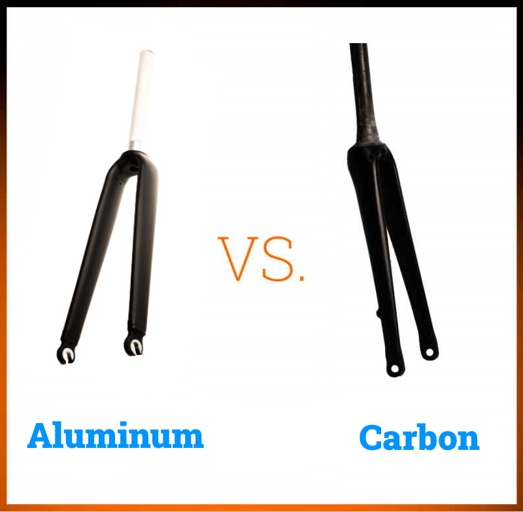
Carbon forks also tend to be more comfortable, as they absorb more vibrations from the road. Carbon forks are typically lighter than aluminum forks, which can be a major advantage if you are looking to reduce the weight of your bike. However, they are also more expensive than aluminum forks.
However, they are not as comfortable as carbon forks and may transmit more vibrations to the rider. They are also more durable than carbon forks, which means they can better withstand impacts from riding on rough roads. Aluminum forks are not as light as carbon forks, but they are typically more affordable.
11 Differences Between Carbon Forks And Aluminum Forks
Here are 11 of the most significant differences: There are a few key differences between carbon forks and aluminum forks that are important to consider when making a decision about which type of fork to purchase for your bicycle.
1. Carbon forks are significantly lighter than aluminum forks.
2. Carbon forks are more expensive than aluminum forks.
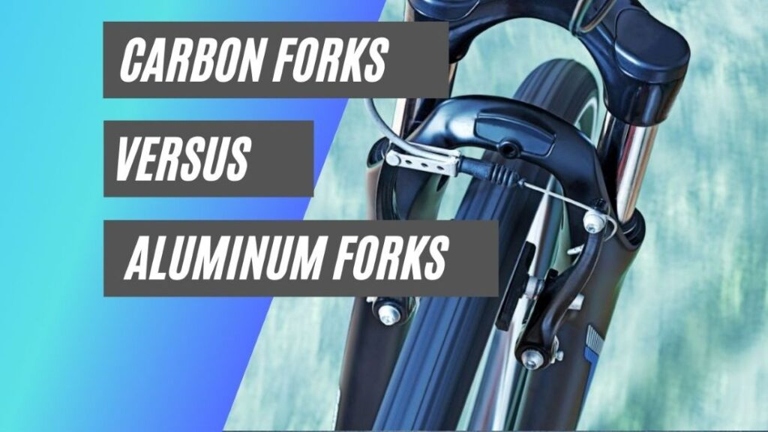
3. Carbon forks are more rigid than aluminum forks, which can provide a more responsive ride.
4. Aluminum forks are more resistant to impact damage than carbon forks.
5. Carbon forks can be more difficult to repair than aluminum forks if they are damaged.
6. Carbon forks can absorb vibration better than aluminum forks, resulting in a smoother ride.
7. Aluminum forks are generally easier to install and remove from a bicycle than carbon forks.
8. Carbon forks can be more susceptible to heat damage than aluminum forks.
9. Carbon forks can be more difficult to paint than aluminum forks.
10. Carbon forks can be more susceptible to UV damage than aluminum forks.
11. Carbon forks can provide a more custom look for a bicycle than aluminum forks.
The 7 Big Differences Between Carbon Forks & Aluminum Forks
Here are seven of the most important differences: There are several key differences between carbon forks and aluminum forks that should be considered when choosing between the two.
1. Weight: Carbon forks are typically much lighter than aluminum forks, making them ideal for racing or other weight-conscious applications.
2. Strength: Carbon forks are typically much stronger than aluminum forks, making them ideal for aggressive riding or heavier riders.
3. Stiffness: Carbon forks are typically much stiffer than aluminum forks, making them ideal for aggressive riding or riders who require precise handling.
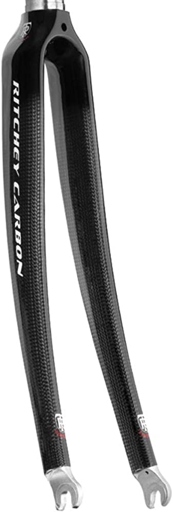
4. Compliance: Carbon forks are typically much more compliant than aluminum forks, making them ideal for riders who prefer a smoother ride.
5. Cost: Carbon forks are typically more expensive than aluminum forks.
6. Durability: Carbon forks are typically more durable than aluminum forks, making them ideal for riders who require a fork that can withstand heavy use.
7. Maintenance: Carbon forks typically require less maintenance than aluminum forks.
1. Compliance
There are seven big differences between carbon forks and aluminum forks:
This makes for a smoother ride, especially on rough roads. 1. Compliance – Carbon forks are much more compliant than aluminum forks, meaning they absorb more vibrations from the road.
2. Weight – Carbon forks are significantly lighter than aluminum forks, which makes a big difference when climbing hills or accelerating.
3. Stiffness – Carbon forks are much stiffer than aluminum forks, meaning they provide better power transfer and handling.
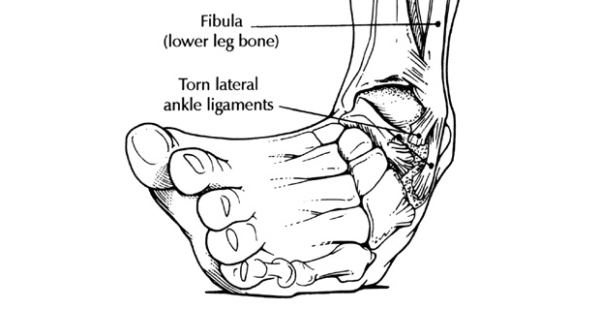
4. Durability – Carbon forks are more durable than aluminum forks, meaning they can withstand more abuse and last longer.
5. Price – Carbon forks are typically more expensive than aluminum forks.
6. Appearance – Carbon forks have a sleek, modern appearance that many riders prefer.
7. Maintenance – Carbon forks require less maintenance than aluminum forks, meaning they’re easier to keep in good condition.
2. Stiffness
2. Stiffness
Additionally, carbon fiber is much stiffer than aluminum, meaning that it is better able to transfer power from the rider to the road. This results in a more efficient ride, as well as a more comfortable one. Carbon fiber is able to absorb road vibrations better than aluminum, resulting in a smoother ride. When it comes to stiffness, carbon fiber simply cannot be beat.
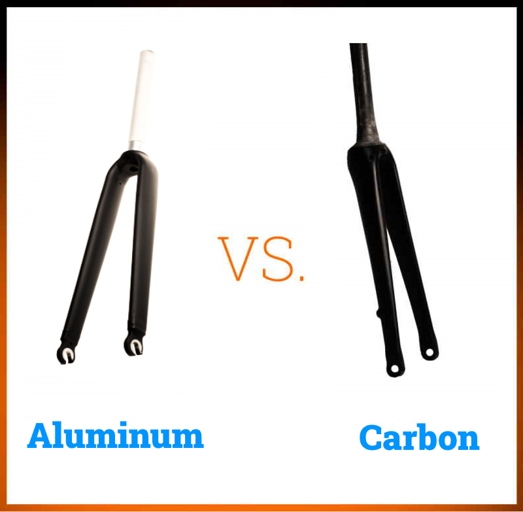
Aluminum forks, on the other hand, are much less stiff than carbon forks. This can lead to a loss of power transfer and a less efficient ride. Additionally, aluminum forks are more likely to transmit road vibrations to the rider, resulting in a less comfortable ride.
3. Weight
First, carbon forks are generally lighter than aluminum forks. Finally, carbon forks are also more expensive than aluminum forks. Second, carbon forks can be made much stiffer than aluminum forks, meaning that they can better handle the weight of a rider and their gear. There are three main differences between carbon forks and aluminum forks when it comes to weight.
4. Maintenance
4. Maintenance

When it comes to maintenance, carbon forks definitely require more care than aluminum forks. You’ll need to regularly inspect your carbon fork for any cracks or damage, and if you do see any, you’ll need to get it repaired or replaced as soon as possible.
You can pretty much just give them a quick once-over every now and then and they’ll be good to go. Aluminum forks, on the other hand, are much more low-maintenance.
So, if you’re looking for a fork that’s easy to take care of, an aluminum fork is the way to go. But if you’re willing to put in a little extra effort to keep your carbon fork in tip-top shape, then it can definitely be worth the investment.
5. Corrosiveness
This means that it is more likely to break down over time, especially if it is exposed to moisture or salt. One of the most important is that carbon is much more corrosive than aluminum. There are several big differences between carbon forks and aluminum forks. Carbon forks are also usually lighter than aluminum forks, which can make a difference when riding on rough terrain. Aluminum is also much more resistant to bending and denting, so it is a better choice for forks that will see a lot of use.
6. Material Toughness
They are: There are seven big differences between carbon forks and aluminum forks.
1. Carbon forks are much lighter than aluminum forks.
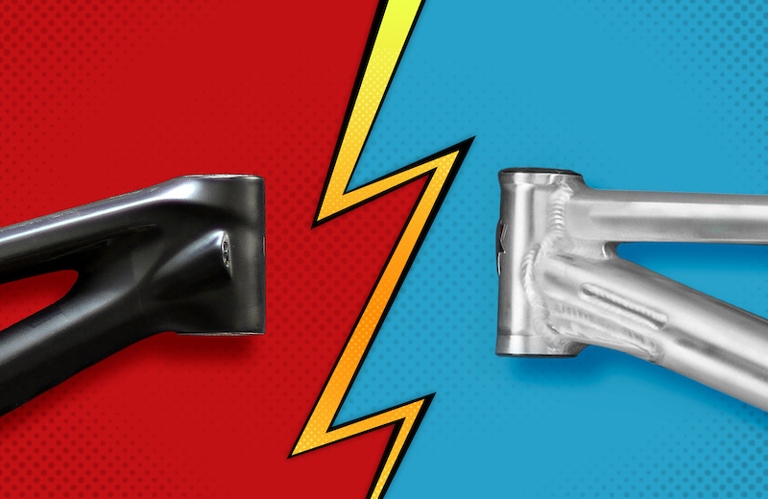
2. Carbon forks are much stiffer than aluminum forks.
3. Carbon forks absorb vibrations better than aluminum forks.
4. Carbon forks are more expensive than aluminum forks.
5. Carbon forks require more maintenance than aluminum forks.
6. Carbon forks are not as tough as aluminum forks.
7. Carbon forks are not as widely available as aluminum forks.
7. Price
They are: There are seven big differences between carbon forks and aluminum forks.
1. Price
2. Weight
3. Strength
4. Stiffness
5. Vibration Damping
6. Aesthetics
7. Manufacturing Process
1. Price: Carbon forks are typically more expensive than aluminum forks.
2. Weight: Carbon forks are typically lighter than aluminum forks.
3. Strength: Carbon forks are typically stronger than aluminum forks.
4. Stiffness: Carbon forks are typically stiffer than aluminum forks.
5. Vibration Damping: Carbon forks typically have better vibration damping than aluminum forks.
6. Aesthetics: Carbon forks can be made to look nicer than aluminum forks.
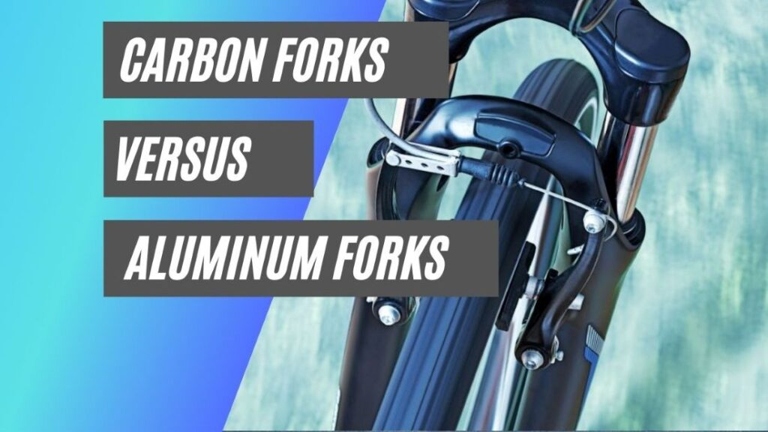
7. Manufacturing Process: Carbon forks are typically made using a more complex manufacturing process than aluminum forks.
What Else Is Different?
Here are 11 things you should know: Carbon fiber forks are the latest and greatest innovation in the world of bicycle forks. But what else is different about carbon fiber forks? They’re lighter weight and stiffer than their aluminum counterparts, and they offer a smoother ride.
8. Utility
There are a few key differences between carbon and aluminum forks that can affect your ride. Another difference is stiffness. Carbon forks can be designed to be stiffer than aluminum forks, which can improve handling and steering precision. One is weight. Finally, carbon forks typically offer more vibration damping than aluminum forks, which can make for a smoother, more comfortable ride. Carbon forks are typically lighter than aluminum forks, which can make a difference if you’re trying to shave ounces off your bike.
9. Looks
For one, carbon forks are often glossy and smooth, while aluminum forks may have a more matte finish. There are a few key differences in the appearance of carbon and aluminum forks. Secondly, carbon forks often have logos or other graphics printed on them, while aluminum forks typically do not. Finally, carbon forks are often black, while aluminum forks come in a variety of colors.
10. Tire Options
One is the weight. Carbon forks can be stiffer than aluminum, which can make a difference if you’re a hard rider or if you’re carrying a lot of gear. Carbon forks are generally lighter than aluminum forks, which can make a difference if you’re racing or doing long rides. Another is stiffness. Finally, there’s the price. There are a few key things to consider when choosing between a carbon fork and an aluminum fork for your bike. Carbon forks can be more expensive than aluminum, so if you’re on a budget, aluminum may be the way to go.
11. Road Buzz
For one, a carbon fork is going to be much lighter than an aluminum fork. This is because carbon is a lighter material than aluminum. There are a few key differences between a carbon fork and an aluminum fork that are worth mentioning.
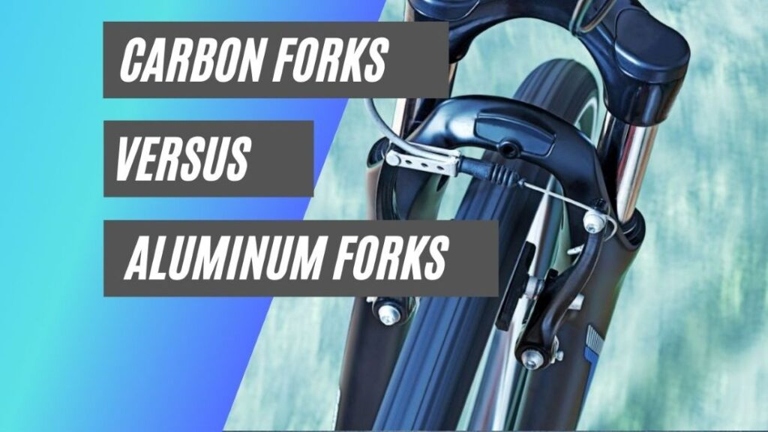
This is because carbon is a stiffer material than aluminum. Another difference is that a carbon fork is going to be much stiffer than an aluminum fork. This means that a carbon fork is going to provide better handling and performance than an aluminum fork.
Finally, a carbon fork is going to be more expensive than an aluminum fork. This is because carbon is a more expensive material than aluminum.
That’s a Lot of Things to Consider, How Do I Know What Works for me?
How do you know what works for you? There are a lot of things to consider when choosing a carbon fork or aluminum fork for your bike. Here are 11 differences between carbon and aluminum forks that can help you decide.
Frequently Asked Questions
1. What is the difference between a carbon fork and an aluminum fork?
2. Which type of fork is better for absorbing shock?
3. Which type of fork is better for steering precision?
4. Which type of fork is better for weight?
5. Which type of fork is better for durability?
6. Which type of fork is better for price?
7. What are the benefits of a carbon fork?
8. What are the benefits of an aluminum fork?
9. What are the drawbacks of a carbon fork?
10. What are the drawbacks of an aluminum fork?
Final thoughts
There are a few key differences between carbon and aluminum forks that are important to consider when making a decision about which type of fork to buy. In general, carbon forks are lighter and more expensive than aluminum forks. They also tend to absorb more vibrations, which can make for a smoother ride. However, aluminum forks are more durable and usually cheaper to replace if they break. Ultimately, the best type of fork for you depends on your budget and riding preferences.
